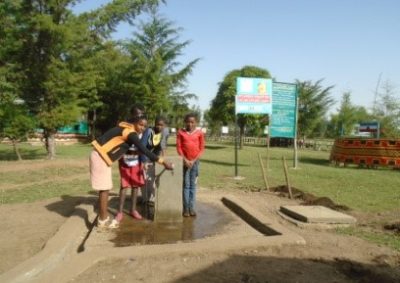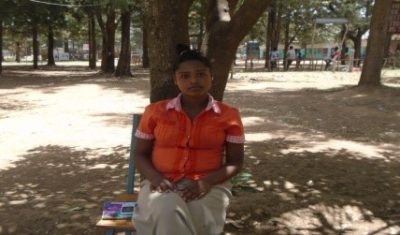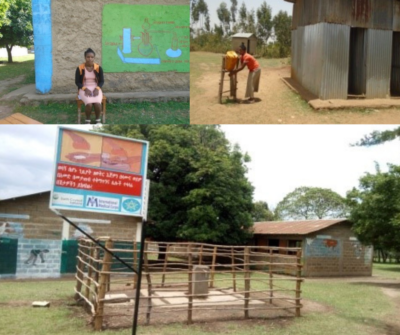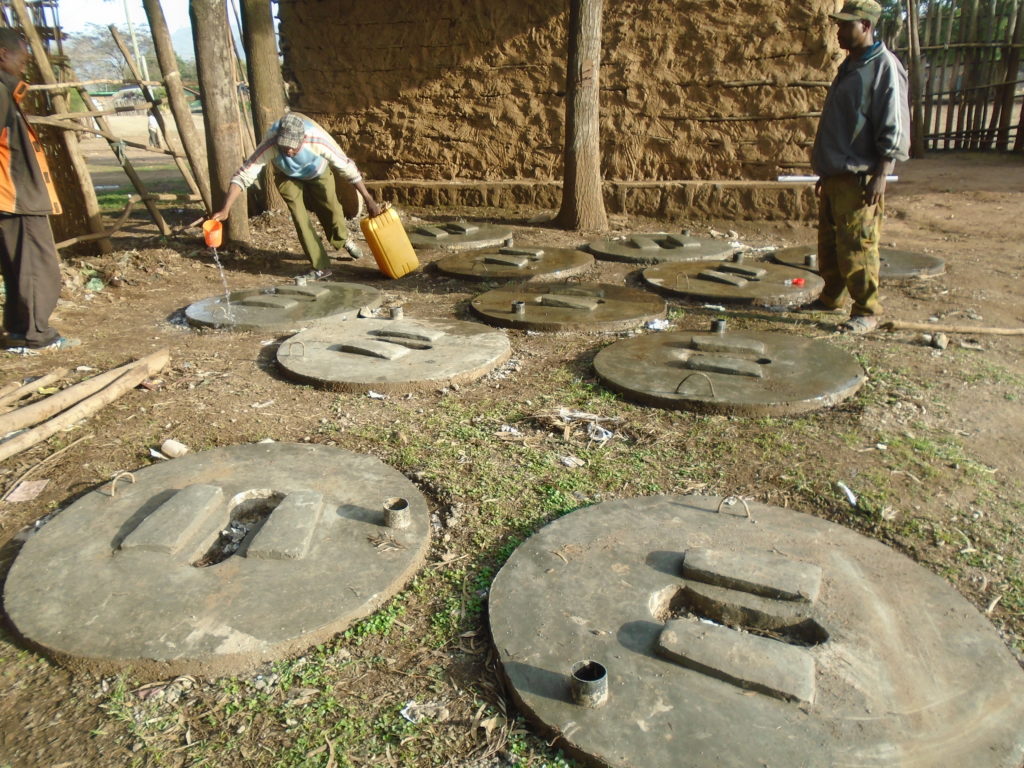Ethiopia, Africa’s oldest independent nation and, to many, a symbol of liberty, is today afflicted by a lack of clean, accessible water. Though this is not the only battle that the people of Ethiopia are facing, given the already immense levels of poverty and instability in the region, it makes life much harder than it otherwise would be.
Such struggles have left the country—which often lacks the resources for recovery—with the highest rates of child malnutrition on record. And not only are the children suffering—the startling reality is that the drought has left nearly 8 million people in need of support simply to survive.

In Wolaita, a zone in south-central Ethiopia, the lack of available and clean water has left two towns—Boloso Sore and Damot Pulasa—and their populations in dire conditions. To help the people in these towns, International Medical Corps recently implemented two programs that increased access to safe water and sanitation, and focused on promoting hygiene education.
These programs have not only transformed the schools and communities in which they are based, but also the lives of individuals on a personal and profound level.
The adolescence of a young woman unquestionably involves many challenges, but for two Ethiopian teenagers—Selamawit and Tesfanesh—one such challenge stands above the rest: the struggle to find clean water. Their stories are not isolated instances, but are instead examples of what has become a disturbingly common issue when growing up in Ethiopia.

Selamawit, a 14-year-old eighth-grader from Boloso Sore, has not only been trying to gain an education and a future by attending school, but has already been providing for herself, her five siblings and her parents for half a decade. Living in one of the areas that the drought has hit the hardest, one of the most important, time-consuming and physically exhausting of her responsibilities involves finding water and carrying it back to her family, ensuring that they can fulfil their basic needs.
When International Medical Corps’ team spoke to Selamawit about the situation, she told us about the challenges she faced as a teenage girl lacking clean water for her personal hygiene. This had been a distressing issue for herself and her classmates before International Medical Corps provided safe water in her school.
The access to clean water has done more than provide a safe water-source; it has created a way for the girls to feel clean and comfortable—a way that they can retain their dignity. In this sense, the program has not only relieved Selamawit of concerns far beyond her years, but has given her a gift: once water points were installed near her home, Selamawit now has “time to study and play with friends” because she no longer has to travel long distances to find water for her family.
17-year-old Tesfanesh faced the same challenge, she says: “I used to wake up early in the morning to go far from our village and join a queue to get clean water. As a result, I was late and often absent from class, as I couldn’t get back on time.”
In a desperate attempt not to lose valuable time in school, Tesfanesh used dirty pond water for drinking and preparing food—and subsequently began to suffer from water-borne diseases. Now, thanks to International Medical Corps, Tesfanesh and her friends are no longer at risk. As she explains, “after International Medical Corps started operating in our area, we have been provided with clean water from the school”.

Funded by the Earth Council Geneva, International Medicals Corps’ programs have increased access to safe water and sanitation as well as promoted vital hygiene education. The effects reach far beyond the schools where they’re primarily based, benefitting the communities at large. The two programs have given more than 10,000 students and teachers reliable source of clean water—demonstrating that, even in extreme and even unimaginable conditions, it’s possible for a small number of targeted programs and dedicated staff to change thousands of lives.
